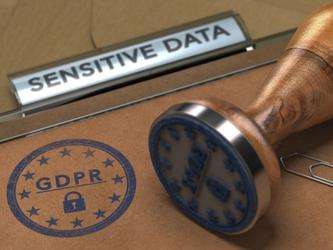A private life: What does the public think of personal data stores?
Everything you do, type, see, buy, watch or listen to online creates data. Despite its importance to organisations worldwide, it is widely believed that, in this hi-tech age we, as humans, have limited control over the data we create.
But what if you had a tool that allowed you to decide who has access to your information and gave you ownership over your personal details, even down to your consumer spending patterns or carbon footprint?
A personal data store (PDS) is an attempt to rectify the lack of data privacy online. It is a fledgling idea for a service that allows an individual to store, manage and use their personal data in a highly secure and structured way, as well as controlling who can access that information. This could mean sharing details with a mortgage provider for the duration of a mortgage application, for example, and then choosing to remove access later. It could also include analysing – and even selling – your own personal data.
The BBC is one organisation that has shown interest in the idea of a PDS, and it began toying with the concept three years ago.
“We all knew large organisations were exploiting personal data for their own good,” says Eleni Sharp, head of product at BBC Research & Development. “We felt the BBC had an opportunity to do things differently. We thought ‘let us put focused energy into personal data stores, do some technical trials, look at what audiences think, and then feed our recommendations back into the BBC and the industry as a whole’.”
The BBC developed a prototype of a PDS that allowed users to view and analyse their data in several areas, including: viewing and listening habits; financial behaviour; carbon emissions; and health and fitness. Users could explore the data held, but the prototype did not allow them control over who could or could not access the information at this early stage in development.
To explore the case of pursuing a PDS, and to help understand public attitudes to the concept, the BBC appointed Savanta to conduct research on the issue.The Savanta research incorporated expert interviews with five data-protection specialists, followed by cognitive testing with 12 pairs of 16- to 25-year-old friends. A quantitative phase came next, consisting of a 15-minute online survey with 1,000 16- to 35-year-olds and a further 500 36- to 55-year-olds, about managing personal data online.
The final part was a 10-day online community, interspersed with focus groups involving online community participants and a live trial of the PDS using BBC and Spotify data.
The young people who took part in the research were attracted to the idea of a PDS, according to Anna Parker, consultant at Savanta. “The hook, initially, was the aspect of control, but when they saw it, they really liked being able to see their data come to life and be in one place,” she says. “They wanted oversight and control – they wanted to see who collects, uses and shares their data, and revoke access.”
Sharp adds: “Young people were so clued up about their data; they wanted to be in control of it, but they felt quite helpless. That was empowering, as there’s a real audience need.”
Areas such as health and finance were the most popular elements for users of the prototype PDS, allowing them to keep tabs on spending or exercise. A feature that measured and kept track of people’s carbon footprint, allowing them to see where improvements could be made, was also viewed favourably. In all, 70% of respondents in the quantitative survey said they knew how a PDS worked, with 68% of under-35s open to using one.
Data security, however, was seen as an issue by research participants, especially with the BBC being better known for television and radio than cutting-edge technology. However, respondents said they trusted the BBC as an institution and would consider using a PDS designed and run by the organisation.
“The PDS wouldn’t hold your NHS data. You wouldn’t put it in – the PDS would access it,” explains Josephine Hansom, managing director, youth, at Savanta. “The BBC wouldn’t see any of it. Addressing the comprehension of things like that is the crux of whether you are going to be able to deliver the PDS.”
One part of the PDS that did not ‘land’ was the media section, says Sharp, which was a crucial area to get right if the BBC was to consider taking the PDS forward. The prototype allowed Spotify, Amazon, BBC Sounds and iPlayer data to be analysed, but proved less popular than other features. “For us to get any traction with this technology within the BBC, we had to nail what the media proposition would be,” Sharp explains. “That helped us home in on what we wanted to do next and come up with the idea of the watch party.”
The ‘watch party’ is an ongoing project between BBC Together and Data Pod, run with world wide web founder Sir Tim Berners-Lee, that allows people to watch BBC shows with friends and family on a laptop or desktop, and then access data on their viewing habits.
The BBC is also working with other organisations exploring this technology, such as NHS England and the Ministry of Justice, to exchange knowledge and work on shared challenges.
Sharp says the project has been a success so far, with a lot of repeat visitors, and shows the potential for a PDS to work in the future.
“It is only a first step, but the prototype is getting people to see their data and think what they want to do with it,” she adds. “We have framed this well and it shows that, technically, we can do it. The BBC totally should be doing this on behalf of all UK citizens.”
This article was first published in the April 2023 issue of Impact.

We hope you enjoyed this article.
Research Live is published by MRS.
The Market Research Society (MRS) exists to promote and protect the research sector, showcasing how research delivers impact for businesses and government.
Members of MRS enjoy many benefits including tailoured policy guidance, discounts on training and conferences, and access to member-only content.
For example, there's an archive of winning case studies from over a decade of MRS Awards.
Find out more about the benefits of joining MRS here.














0 Comments